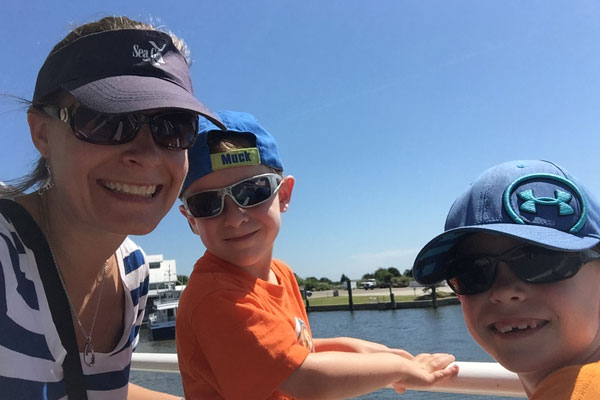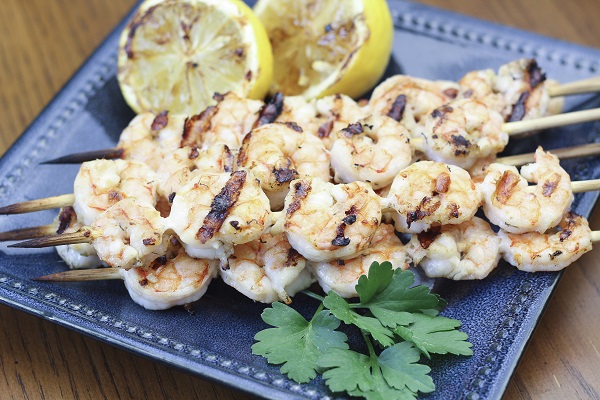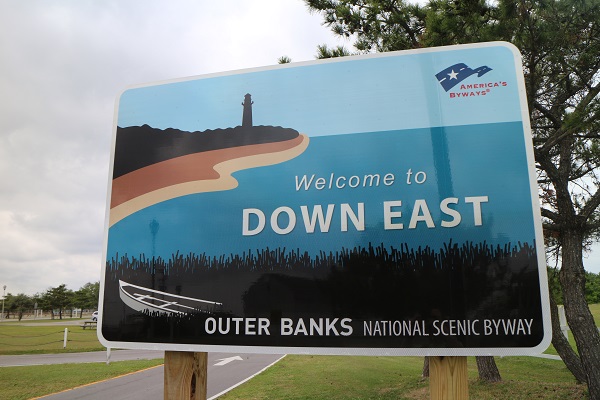FROM THE EXECUTIVE DIRECTOR: Here Comes the Sun: Illuminating Summer Fun, Sea Grant Stories

Growing up, my summers rotated, without a doubt, around the sun. Outside in rural Orange County, on the beach at Emerald Isle or camping in Boone: If the sun was out, so was I.
This summer is no different for my children, now 5 and 7. I revisit our state through their eyes and observations. Sometimes it’s a walk down memory lane. More often than not, it’s a new learning experience just around the next bend.
Our beaches and soundside communities indeed have changed over my lifetime. Yet their beauty and bounties persist in so many ways. Similarly, this issue of Coastwatch takes you on a range of explorations.
Recollections from state leaders who were instrumental in developing the 1997 Fisheries Reform Act document the historical context, as well as the important lessons learned, as this legislation marks its 20th year. Resulting interviews, podcasts and discussion guides will support constructive discussions moving forward.
As one of 150 nationally designated byways, the Outer Banks Scenic Byway is among destinations to consider this year. Exploring the rich history and culture through Dare, Hyde and Carteret counties enhances a growing sustainable tourism effort that celebrates, and supports, these unique communities.
I am especially excited about the Aug. 21 total solar eclipse that the southwestern tip of North Carolina will experience. The rest of our state will see a partial eclipse, with about 90 percent coverage of the sun for a few hours that afternoon. Our last total solar eclipse in the state was in 1970. The next one over North America will be well to our south in 2024.
Thus, truly, if you can get in the path of “totality,” it’s going to be spectacular. In addition to the activities mentioned starting on page 16, researchers from East Carolina University, with N.C. Space Grant funding, will measure how the partial eclipse affects conditions in the lower atmosphere.
I share this news with you in my additional role as interim director for Space Grant. Sea Grant and Space Grant programs here collaborate to support graduate research that links NOAA and NASA resources to address N.C. coastal resource management needs.
Sea Grant has a long history of working with local, state, federal and nonprofit efforts to support research and education needed to position our state to respond to current and emerging challenges. In April, North Carolina’s Coastal Conference, with the support of sponsors from across the state, provided an excellent forum for discussion — and a platform on which partnerships will be built and/or expanded to address these challenges.
I appreciate the many North Carolina Sea Grant partners across the state and nation who regularly reach out to voice their support of our team’s work and the on-the-ground impacts our program has delivered for over 50 years. We continue to need your support and engagement.
I welcome your stories on how our Sea Grant research results and staff engagement benefit your work and family life, or the wider community. I also seek input on areas where our program can collaborate on future challenges. Please email me at snwhite3@ncsu.edu to share your thoughts. I encourage you also to let your elected officials know how you, too, value North Carolina Sea Grant.
The video at go.ncsu.edu/NCSGvideo offers a glimpse of the breadth of Sea Grant’s work. Thanks to our friends who have shared the link via social media.
The sun will indeed continue to shine upon our waters, both inland and at the shore. This summer, I hope you will spend time exploring our coast. Do as I’ve done for years: skipping and hopping across hot sand to find and enjoy the marsh and tidepool critters — and the marginally cooler summer waters of the Atlantic Ocean.
This article was published in the Summer 2017 issue of Coastwatch.
For contact information and reprint requests, visit ncseagrant.ncsu.edu/coastwatch/contact/.
- Categories:


